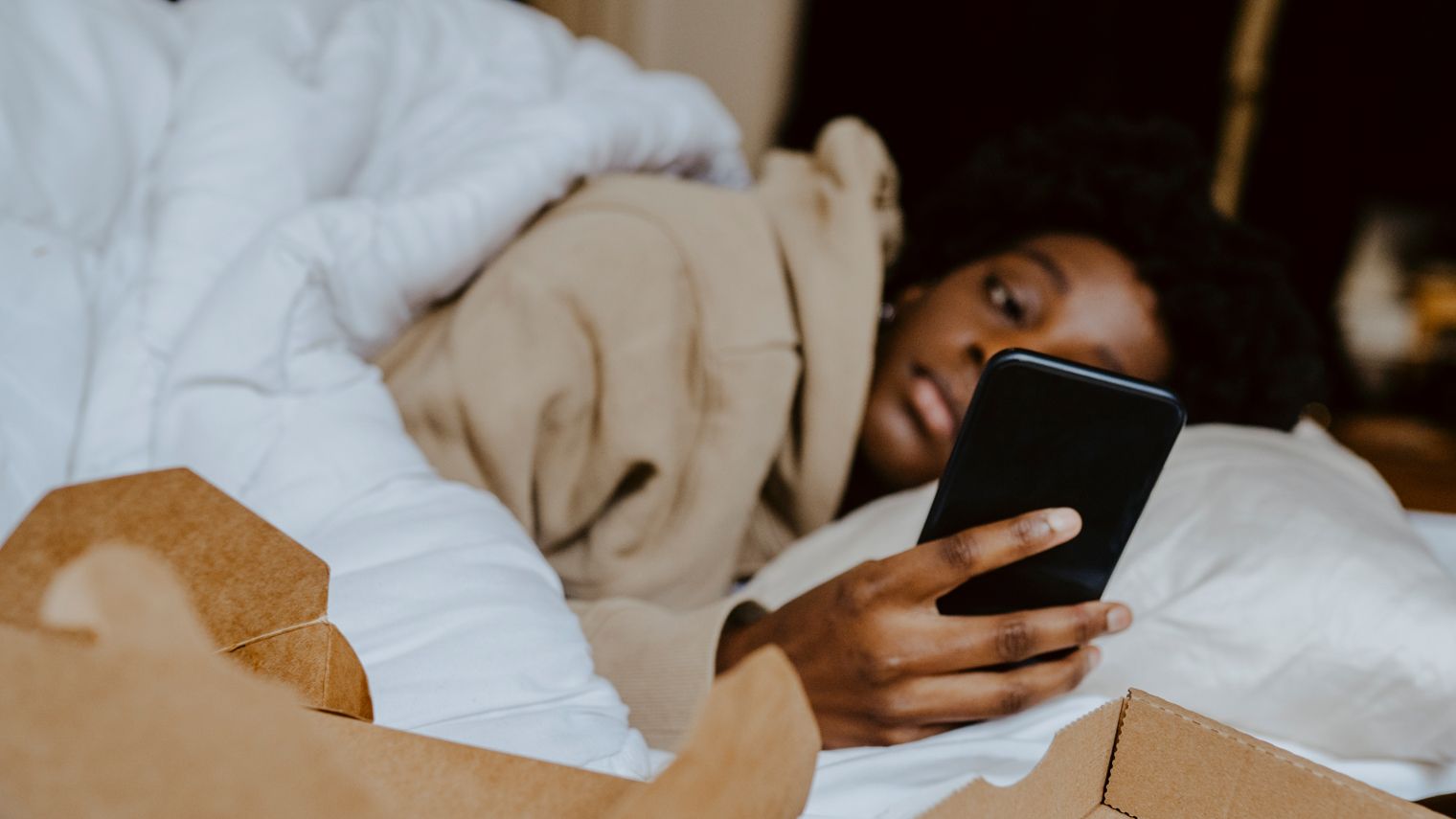If IBD Affects My Gut, Why Am I Always So Fatigued?
September 28, 2022
Content created for the Bezzy community and sponsored by our partners. Learn More

Maskot/Stocksy United
The waves of exhaustion can be even worse than the bowel symptoms.
When most people think of inflammatory bowel disease (IBD), including Crohn’s disease and ulcerative colitis, they think of bowel symptoms, which can often be debilitating. I’ve come to expect them, of course, when I am flaring or if I have eaten something that does not agree with me. But what throws me for a loop is the fatigue.
This fatigue is like nothing I ever experienced prior to developing IBD. I can be feeling great, then all of a sudden, it feels like I have been hit with a wave of exhaustion so extreme that I have to work to keep my eyes open. My whole body feels heavy and achy, my head feels foggy, and I do not even have the energy to watch TV. Sometimes it happens even when I’m in remission.
It turns out, I’m not alone in this. In a 2015 study, people with IBD said their most bothersome symptom was actually IBD-related fatigue.
And in fact, people with IBD are twice as likely to experience fatigue than healthy individuals, and fatigue affects about 50% of people with IBD. However, it’s more common among people with Crohn’s disease than those with ulcerative colitis. While fatigue more commonly affects those with active inflammation than those in remission, it can occur at any time.


Not just tired
Fatigue that occurs with chronic illnesses, including IBD, is different from garden-variety fatigue. In IBD, the lack of energy or feeling of exhaustion occurs out of proportion to physical exertion, and is not always relieved by rest (though for me, rest is crucial).
To me, what sets IBD-related fatigue apart from “regular” fatigue is that IBD fatigue feels much stronger and takes longer to dissipate than regular fatigue. Typically, with regular fatigue, a couple good nights of sleep, healthy eating and some gentle exercise can help eradicate the fatigue quickly, but IBD fatigue can linger for a longer period.
Additionally, IBD fatigue can be so debilitating that it is difficult to be productive or do much of anything. But with regular fatigue, you can often push through and wake up feeling better the next day.
What causes fatigue in IBD?
There are many causes of fatigue in people with IBD. The most common ones include:
- Active inflammation: When there is active inflammation in our bodies, we release inflammatory cytokine molecules that can cause fatigue.
- Anemia: Anemia can be caused by deficiencies in vitamins or minerals such as iron, vitamin B12, or folate. Anemia can also result from having a chronic disease (called, unimaginatively, anemia of chronic disease).
- Micronutrient deficiencies: These can occur due to malabsorption, diarrhea, and dietary restrictions.
- Adverse effects: These effects can occur from medications.
- Intestinal dysbiosis: This involves disruptions to the healthy microbiome.
- Stress, anxiety, depression: These and other psychological conditions can cause fatigue in people with IBD.
- Insufficient sleep: It’s common in IBD, especially during active disease periods.
Strategies for managing IBD-related fatigue
I am thankful that this type of fatigue does not happen to me as often as it did when I was younger, but I like to think that my lifestyle modifications throughout the years have helped. I believe the best way to manage my IBD-related fatigue is to do everything I can to keep my disease well-controlled and live my healthiest life.
I do everything I can to get a good night of sleep. I try to achieve some kind of movement every day, whether it is a gentle walk or high intensity interval training. A 2020 study suggested that exercise can be safe for people with IBD and may improve fatigue, along with disease activity and other quality of life measures.
Additionally, when I start noticing a pattern of increased fatigue — whether during my workouts, going up a flight of stairs, or even if I wake up feeling less rested — I ask my doctor to check to make sure I am not iron deficient or anemic. A few iron infusions later, and my energy bounces back quickly!
Working closely with your medical team is imperative. They can help develop an effective treatment plan to ideally achieve deep remission, meaning no signs of inflammation can be seen on a colonoscopy or when looking at biopsies of your intestines under the microscope.
Other important lifestyle modifications include exercising, sleeping enough and well, and eating a healthy, diverse diet.
Additionally, it is important to treat any anemia that may be present, correct vitamin deficiencies, and eat a diverse diet as much as possible. Adding a wide variety of plant-based foods such as fruits, vegetables, and nuts/seeds to your diet could diversify your microbiome and improve dysbiosis.
There could also be medications contributing to your fatigue, so talk with your doctor about your medication list. Sometimes small tweaks in medication regimens can lead to fewer side effects.
Lastly, as in any health condition, it is very important to address stress, anxiety, depression, and any other psychological condition that could be adversely affecting your health.
The takeaway
Fatigue is certainly a burdensome symptom for those of us with IBD. Be sure to talk with your doctor if you notice a pattern of fatigue, as vitamin deficiencies may be contributing to your symptoms.
In addition, changes to your medications could help you reach remission. Remember to allow yourself to rest, treat your body with grace, and do what you can to live a healthy lifestyle.
Medically reviewed on September 28, 2022
4 Sources


Like the story? React, bookmark, or share below:
Have thoughts or suggestions about this article? Email us at article-feedback@bezzy.com.
About the author